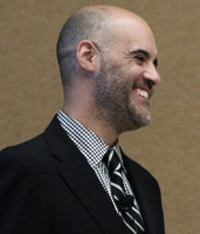February 11
Best Practices for Clear Communication
0 comments

Cliff Coleman, MD, described the importance of taking a “universal precautions” approach to healthcare. With this approach, one assumes that patients of all educational levels may misunderstand a document. For this reason, it’s best to use plain language to communicate health information to all patients.
This “universal precautions” approach starkly contrasts with the current healthcare culture, which places the burden of understanding on the patient.
Dr. Coleman commented that the healthcare system is set up to reward health professionals for poor communication.
Dr. Coleman went over best practice approaches for clear verbal communication. He highlighted some of his “must-knows” for attendees. These included knowing that patients may have different priorities than the healthcare provider. He also encouraged attendees to focus on no more than 3 “need to know” items, avoid medical jargon, and other tips.
Dr. Coleman ended his lecture by stating: “In 2010, half of the medical schools taught health literacy on average for only about 3 to 4 hours throughout the 4-year program. However, in residency programs, approximately 300 hours were devoted solely to communication on average. Although we still have a long way to go and much work to be done, we can take comfort in the fact that we have taken our first few baby steps.”
Tags